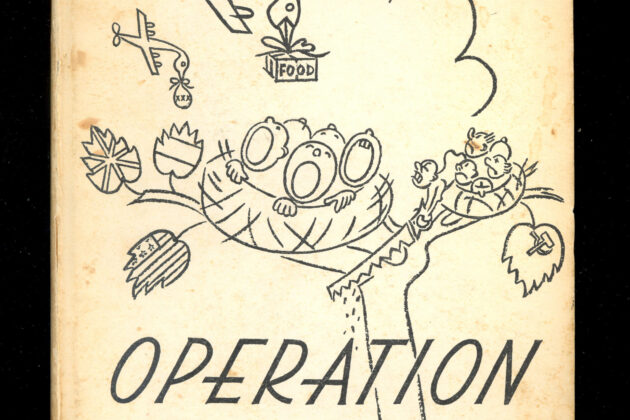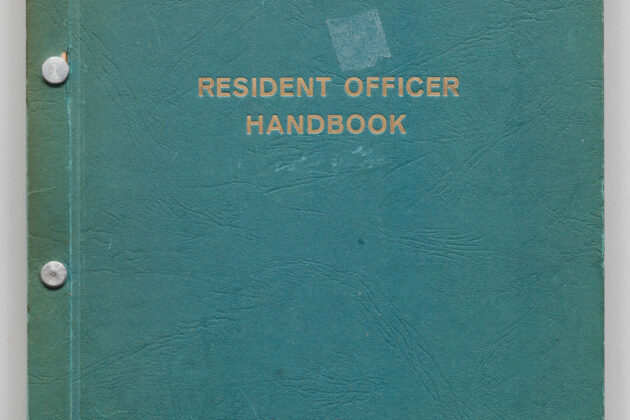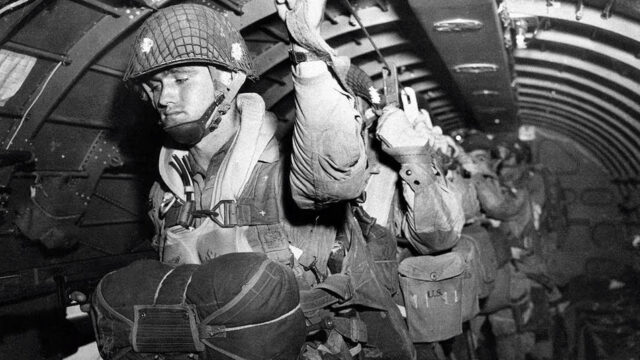
From D-Day to the U.S. Foreign Service: Lt. Col. Karl F. Mautner
In the early dark morning hours of June 6, 1944, U.S. Army Second Lieutenant Karl F. Mautner of the 505th Parachute Infantry, 82nd Airborne Division, waited for the signal to jump into the skies over Normandy, France. He didn’t remember feeling scared–more uncomfortable than anything–“packed like mules,” wearing scratchy woolen underwear and loaded with 60 pounds of gear. The light above the jump door turned from red to green, and the jumpmaster shouted, “Out! Out! Out you go!” And Austrian-born Karl Mautner plunged into darkness.
Just how did a Jewish Austrian become a U.S. soldier, U.S. citizen, and a U.S. Foreign Service Officer?
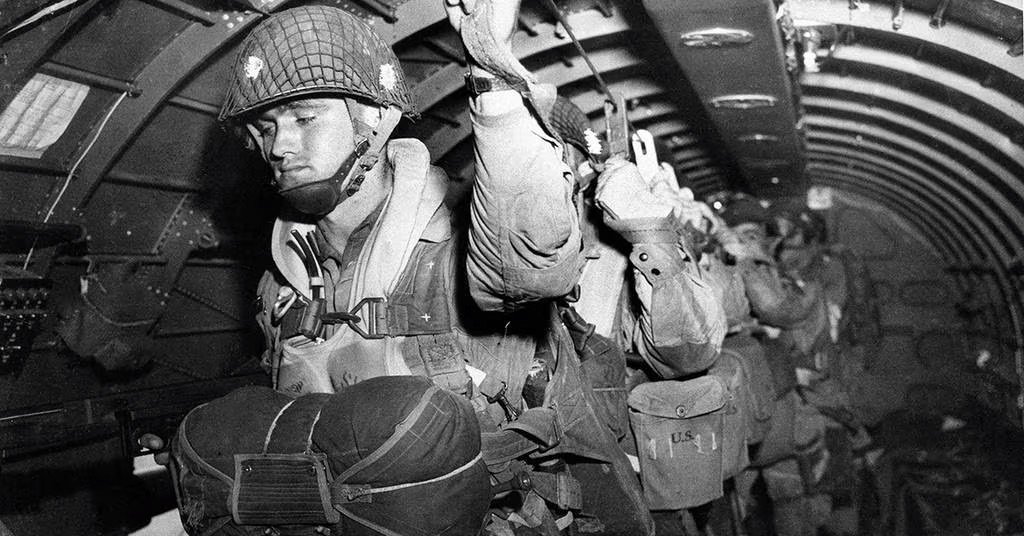
Escaping Nazi Persecution
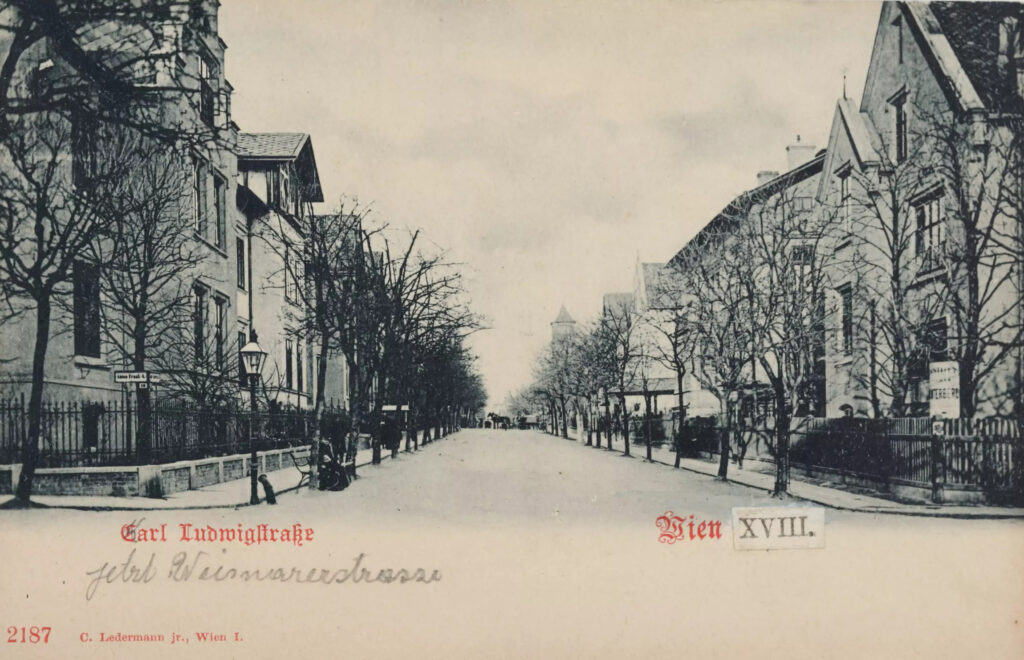
Mautner was born in Vienna, Austria, in 1915 and served in the Austrian Army from 1935-1936. After Nazi Germany’s aggressive annexation of Austria in 1938, violence against its Jewish citizens began immediately. Many Jewish Austrians sought visas to leave the country permanently. Mautner’s brother and sister obtained visas to the United States to live with relatives, but Karl could not obtain one.
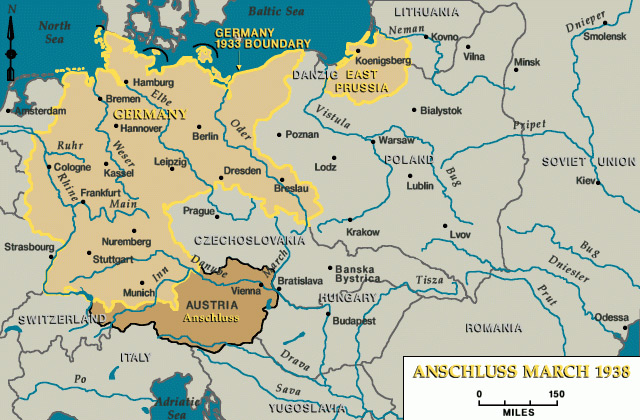
In 1939, he fled to Budapest, Hungary, with his parents, Stephan and Else, and applied again. He received a visa in 1940 from U.S. Foreign Service Officer Milton Rewinkel, then Vice Consul of the U.S. Legation. That visa may have saved his life. Karl’s father, Stephan Mautner, had been a wealthy industrialist before the Nazis stripped him of his assets and valuable art collection. They did not leave Budapest with Karl and were murdered in July 1944 in Auschwitz Concentration Camp.
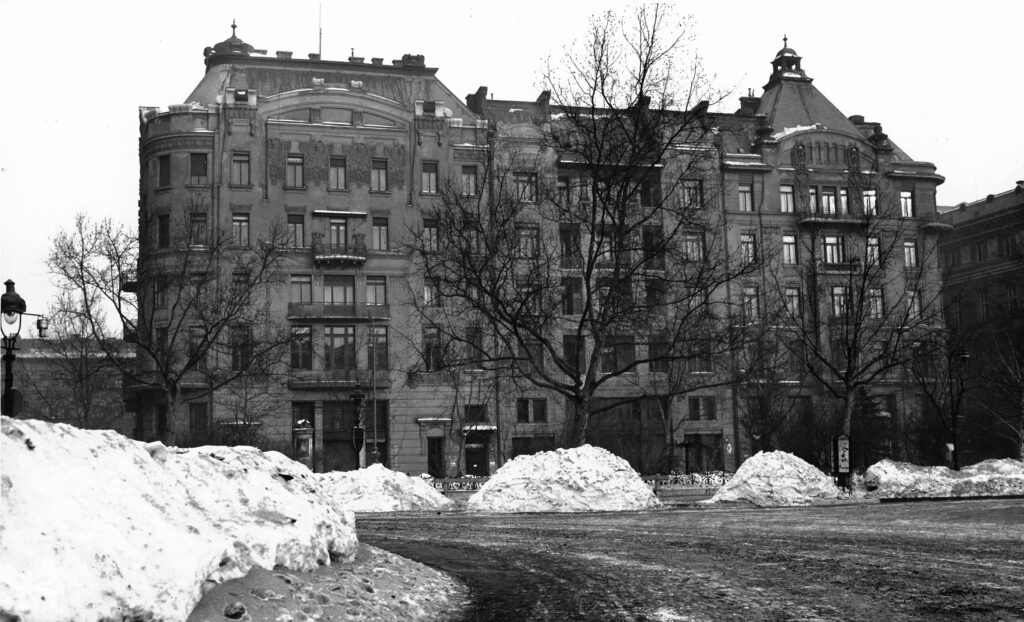
Mautner landed in New York City on February 29, 1940, with $8 in his pocket. Two days afterward, he applied for his naturalization paperwork to become a U.S. citizen. Well-educated in Vienna, Karl was bilingual, speaking and writing English and German fluently. This skill would later make him indispensable to the U.S. government.
He lived in New York with his sister, Elisabeth, who had escaped Vienna in 1939.
Entering the U.S. Military
In April 1941, Mautner was drafted into the U.S. Army. He had not yet become a U.S. citizen, and the United States had not yet entered World War II. He had been drafted under the terms of the Selective Training and Service Act of 1940, which required all men between 21 and 45 to register for the draft.
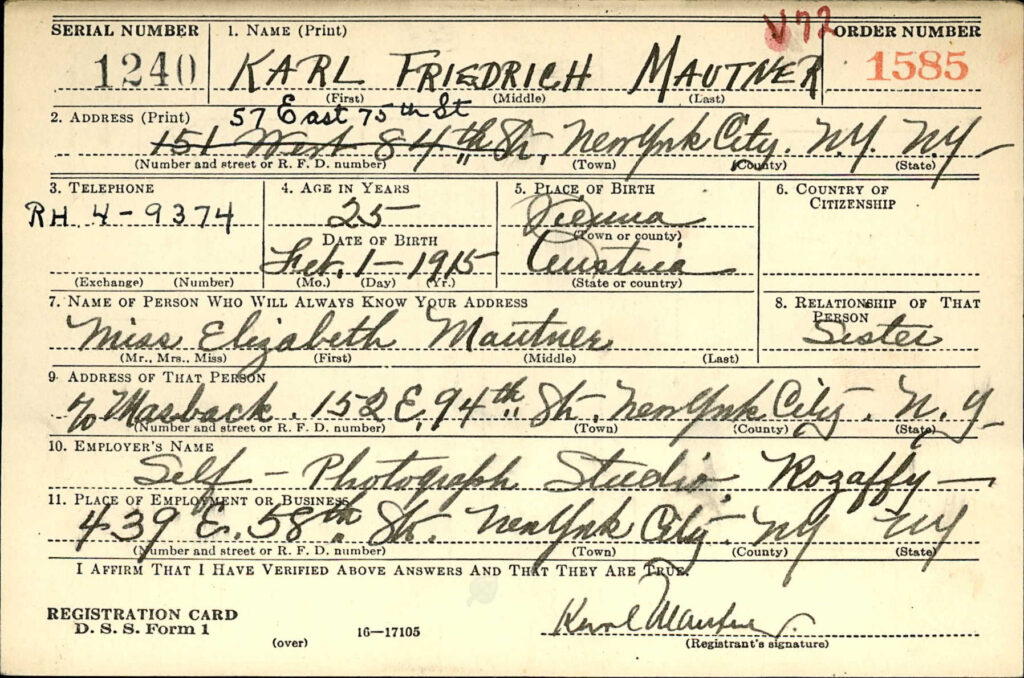
Mautner was selected by lottery and was assigned to Fort Jackson, South Carolina, to complete his basic training. Having served in the Austrian army, he adjusted to military life quickly.
“I knew my ‘right face, left face, about face’ business and advanced fairly rapidly to the high rank of corporal, then sergeant, still earning $21 a month,” said Mautner.
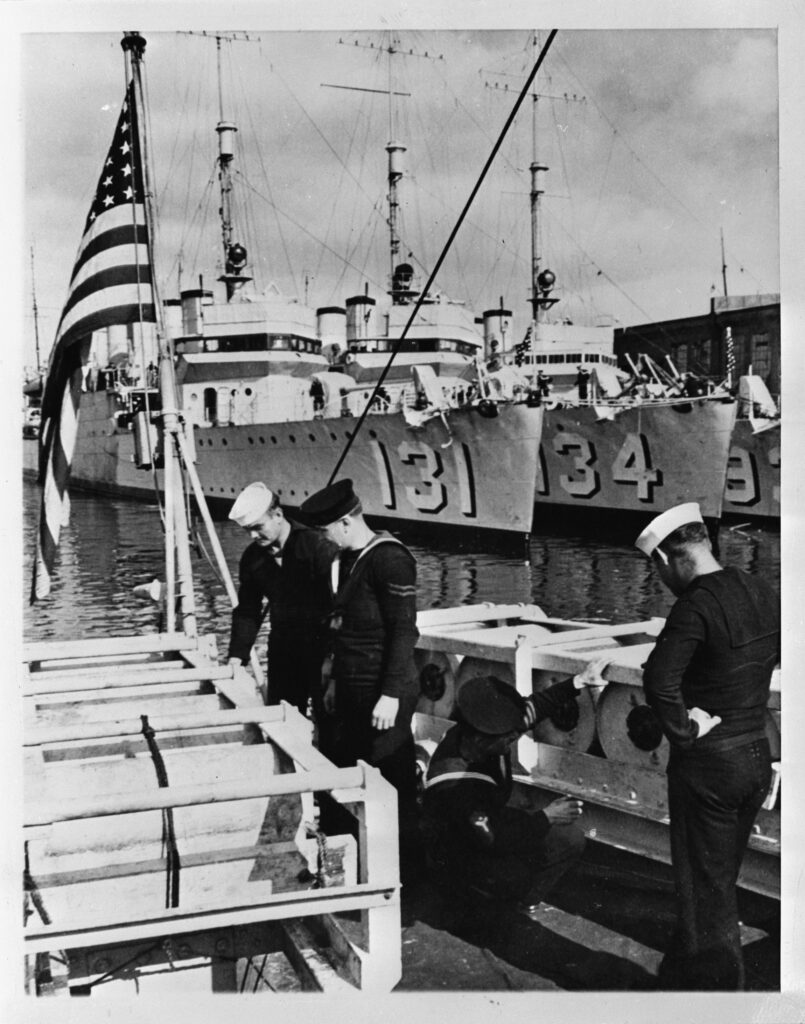
After basic training, the army sent Mautner to Bermuda to assist in the Destroyers for Bases Deal. He spent two years there, from September 1941 to June 1943, becoming an expert marksman. He joked that initially, his platoon “of pretty tough guys, mostly from Kentucky,” eyed him with skepticism, but his shooting prowess and his rank quickly won them over.
“I was a very good pistol shot having been a hunter in Austria and having shot a lot, and I outshot all those hillbillies,” Mautner said.
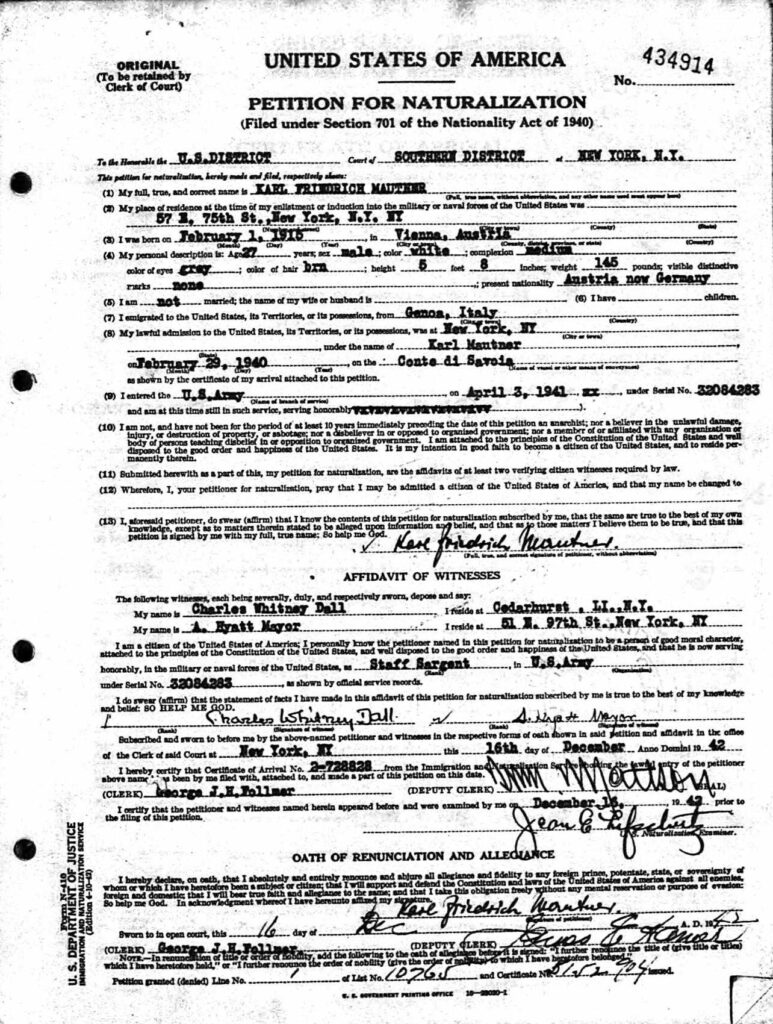
During this time, his naturalization was approved, as citizenship was guaranteed after spending one year in the military.
Soon after, he completed officer training and went to Camp Ritchie in Maryland, a secret army intelligence base for German- and Italian-speaking U.S. officers. He had risen to the rank of Lieutenant and had become a significant asset to the U.S. war effort. Upon his graduation at Camp Ritchie, Mautner was deployed to England in January 1944.
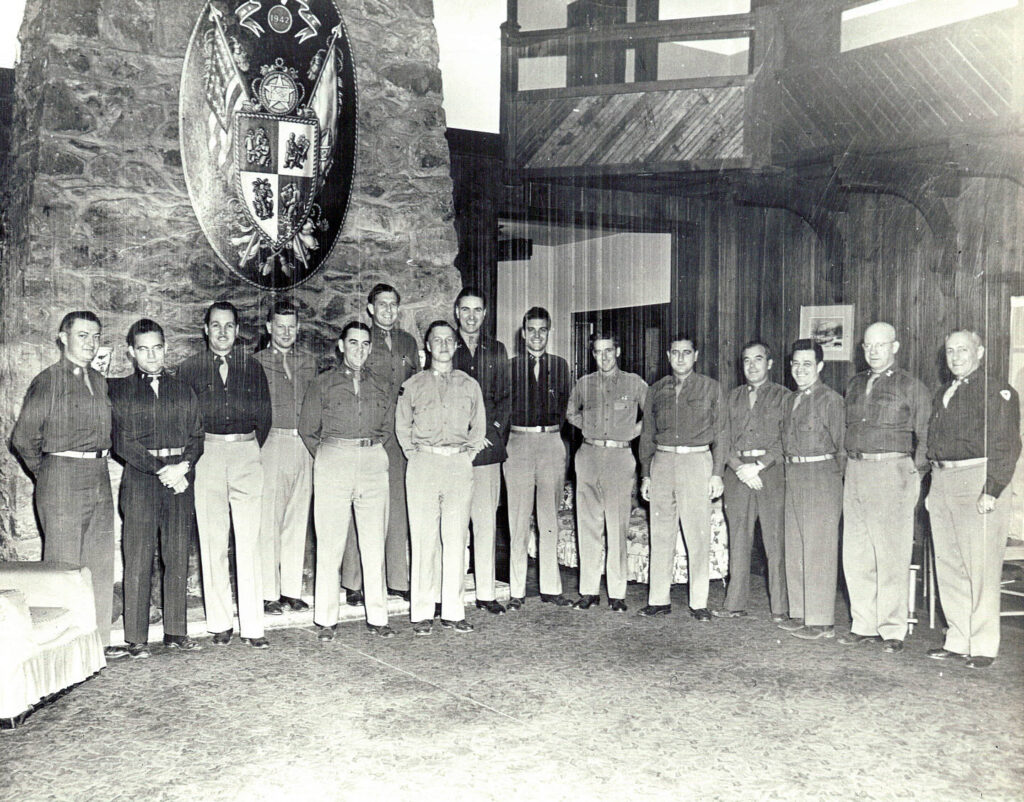
The D-Day Jump
Well-trained by the U.S. Army, one thing Karl Mautner was not trained in was that of a paratrooper. But that did not stop him from volunteering for the 82nd Airborne Infantry as plans for the Normandy invasion were underway.
As he jumped with the rest of his division on June 6, 1944, their orders were clear: land under the cover of darkness, destroy all bridges leading to the beaches where the land invasion would take place in the early morning, and fight the Germans they might encounter.
But most of the airplanes had overshot the landed zone, and paratroopers landed in remote fields, bewildered by which direction to take. And as Mautner recalled, they were in danger of being shot by Germans or even their own men. He was particularly disadvantaged, as any spoken word carried an Austrian accent.
“I landed like a bag of potatoes between a couple of cows who were not interested in me. I started walking and being careful about what I was doing and about the noise I was making. Then I was challenged by some of our people–we all had those click, click, click things. The password was called ‘flash,’ and you had to answer ‘thunder.’ They didn’t like the way I pronounced ‘thunder,’ and I heard the noise of readied rifles. That was a bit hairy, but one of them eventually recognized me, and about five or six of us then wandered in the same direction and wound up about 11 am instead of 4 a.m. in Sainte-Mere-Eglise where we had our designated drop zone and rendezvous site.”
– Karl Mautner
For their bravery and performance during the invasions, the 505th was awarded the Presidential Unit Citation, the unit equivalent of the Medal of Honor, which is given to individual soldiers.
Mautner’s Life in Post-War Berlin
In May of 1945, the war in Europe ended. The 82nd Airborne was sent to Berlin as an occupation force in the war-torn city. From there, Mautner met with familiar faces.
One individual, who he knew through his sister in New York, was an up-and-coming Foreign Service Officer Ed Kellogg. Through Kellogg, Mautner was then connected with the U.S. Foreign Service community in Berlin.
When the 82nd Airborne returned to the United States, Mautner chose to remain in Berlin. Karl explained, “German speakers were in demand. I had little to gain in the United States. I had no job, no degree or anything…”
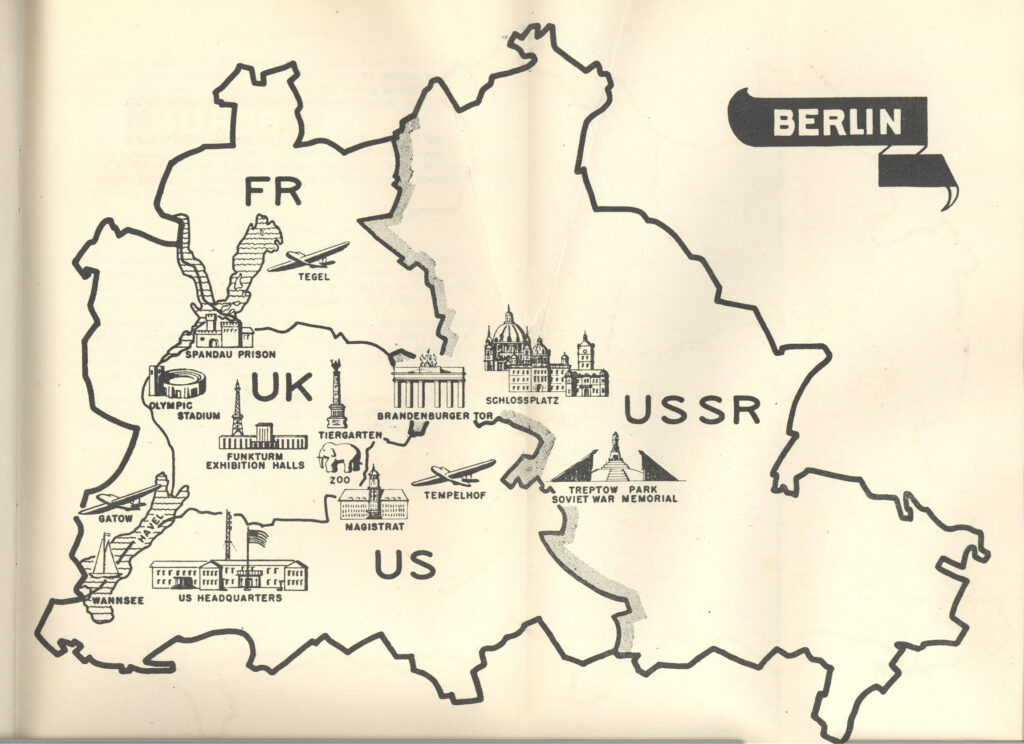
The Office of Military Government, United States (OMGUS) was establishing its headquarters in Berlin during the post-war occupation, and Mautner’s German language skills proved useful. OMGUS served as the U.S. military-established government of Germany and Berlin after the end of hostilities. The commandant of the U.S. Berlin sector noted Mautner’s fluent German and asked him to serve as the U.S. liaison officer to the newly elected Mayor of Berlin.
In constant conversation with the Soviets in East Berlin, interviewing residents, and observing the Berlin local government, Mautner honed his diplomatic skills before he became a U.S. Foreign Service Officer. He was in Berlin during the tense standoff in 1948, when the Soviets blocked eastern supply routes into Berlin, leading to the U.S.-led Berlin Airlift. He also engaged in disputes over ration cards, public utilities, and local transportation between the Soviets and Americans.
FROM THE COLLECTION
"Operation Vittles" Cookbok
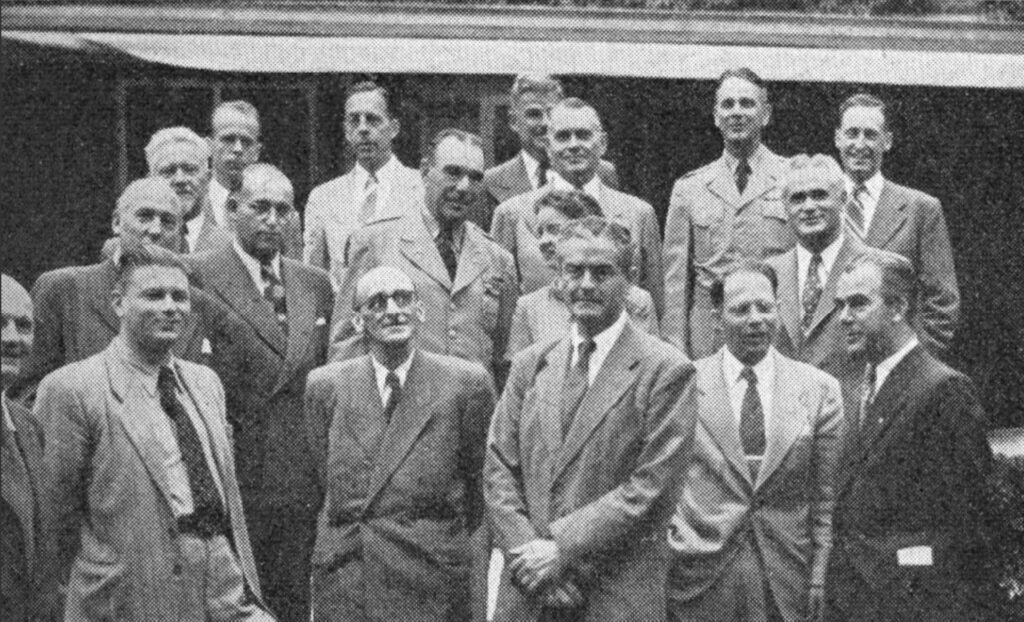
FROM THE COLLECTION
Resident Officer Handbook
Search for Lost Family Heirlooms
While stationed in Berlin in 1947, Mautner had access to the Reparations and Restitution Branches of OMGUS. He began the search for his father’s art collection that the Nazis forced him to sell in 1938 before the family fled Austria.
An artist in his own right, Stephan Mautner owned original pieces of art by Rudolf von Alt. An agent forcefully purchased and received the commission for the artwork for the collection of Adolf Hitler in Vienna for a total of 8,000 German Marks, or $94,363 in 2024. The money the Mautners received for the collection was likely used to help Karl and his siblings escape Europe and travel to the United States.
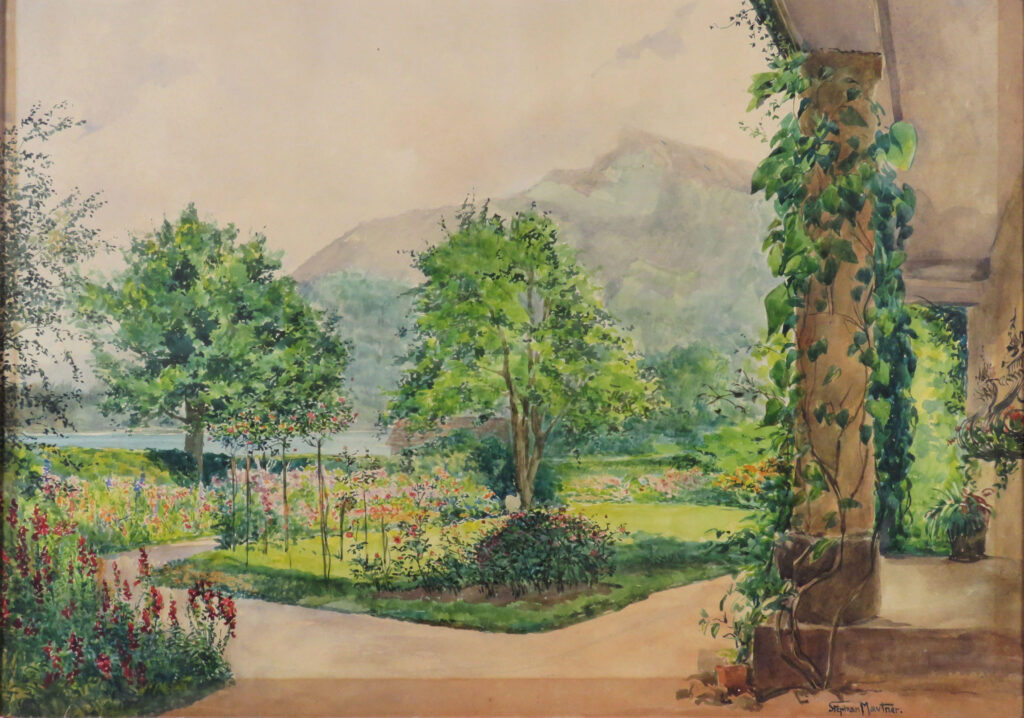
Karl filed a claim to begin the search for his family’s artworks. He was aided in his understanding of the OMGUS bureaucracy and proximity to various archives of assets stolen by the Nazis. However, a year’s worth of back and forth revealed regrettable findings. Karl learned that Hitler had an affinity for Rudolf von Alt, meaning there were many von Alt paintings to sort through and return to their respective owners. Further, von Alt painted different versions of the same scene, complicating the identification process. Karl was required to identify the works via photographs or a visit to the facilities where the unclaimed paintings were stored.
The paintings were only restored to the Mautner descendants in 2016.

Mautner’s Foreign Service During the Cold War
While in Berlin, Mautner joined the Foreign Service and continued his political liaison work with the Berlin government.
After joining, he met his future wife, Martha Constance Halleran. Halleran was one of the few women in the Foreign Service and had several years of experience in U.S.-Soviet relations under her belt. However, State Department regulations mandated that women could not remain in the Foreign Service if they married another Foreign Service Officer.
Halleran resigned when she became Mrs. Karl Mautner, but continued her work in foreign affairs at the U.S. Department of State as a distinguished civilian employee. The majority of Martha’s career was spent in the Bureau of Intelligence and Research, where she focused on Soviet relations from 1966 to 1993.
After spending 13 years in Berlin, the Mautners returned to Washington, DC in 1958 where Karl worked in Cultural Affairs before being assigned to the Berlin Task Force in 1961. His experience as an Army and Foreign Service Officer in Berlin proved invaluable when East Germany hastily constructed a wall dividing Berlin in half. Mautner accompanied Vice-President Lyndon Johnson to Berlin on a trip to express support for West Berlin.
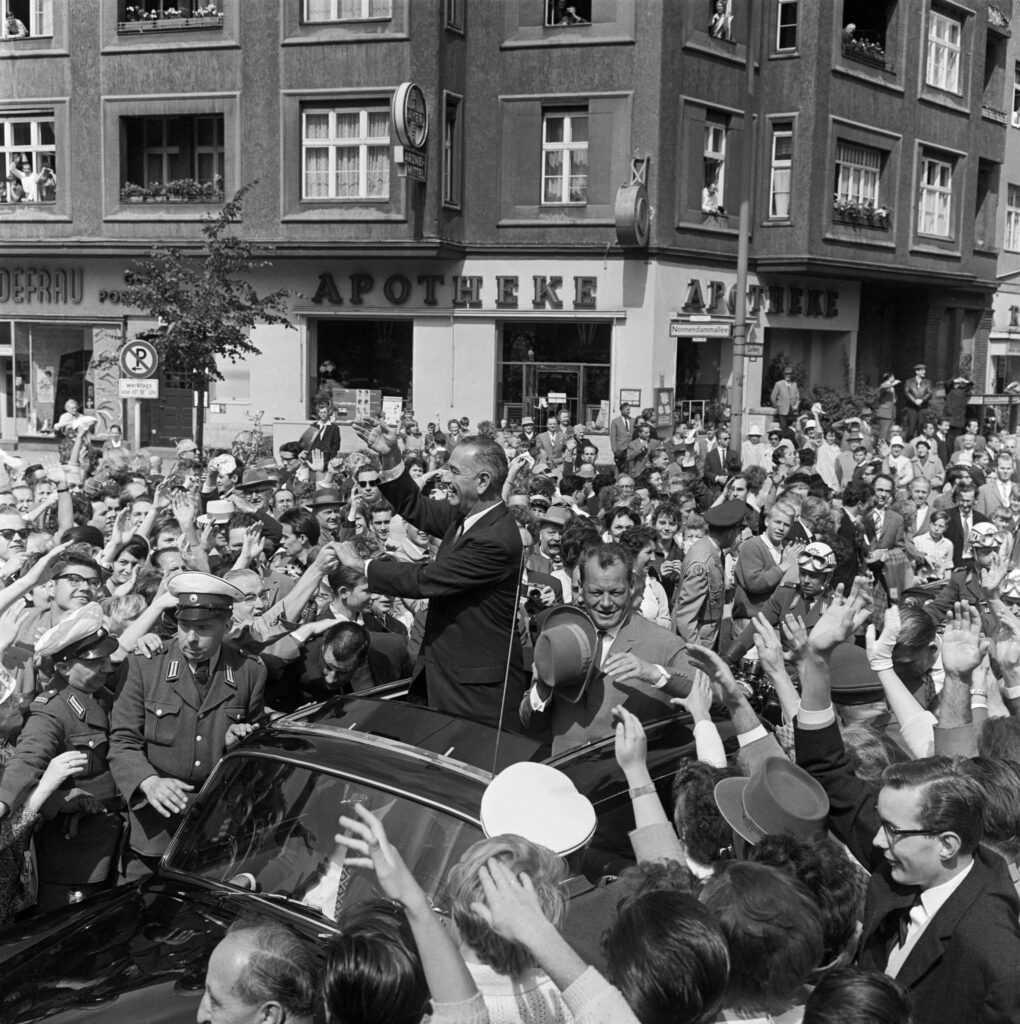
To Africa, NASA, and Retirement
Life in the Foreign Service can be unpredictable, and officers can be sent anywhere around the world. Despite having no experience in African affairs or Arabic language training, the State Department sent Mautner to Khartoum, Sudan, as Chief Political Officer. While he “enjoyed the assignment,” Mautner felt that veering so far from his expertise in Soviet relations likely hindered his career advancement.
In 1965, Karl’s assignment ended, and he returned to Washington and accepted a detail to NASA in the Office of International Affairs. He practiced diplomacy with foreign officials to garner global support for the Apollo mission, the U.S. space program that successfully landed astronauts on the moon in 1969. Shortly afterwards, Mautner left the Foreign Service and transferred to work as a civilian at NASA, where he worked on technology exchanges with foreign scientists.
From an immigrant fleeing Nazi Europe to U.S. military officer, U.S. Foreign Service Officer to outer space, Karl Mautner had a storied career. Looking back, he reflected on what he considered to be his greatest achievement and why. It was all about his diplomatic skills.
“I think the highlight of my career was really my Berlin assignment. The fact that I was accepted in the Foreign Service coming really completely from the outside. I was able to create a job and the pattern I set there for the relationship between Berlin and the American forces was important. I was successful, I think because I was able to make my contacts feel comfortable to let their hair down when talking with me. It all led to considerable loosening of relations.”
– Karl Mautner
Sources Consulted
C-SPAN Veterans’ Day Recollections, June 6, 1994.
Records of the U.S. High Commissioner for Germany [HICOG] (RG 466) | National Archives
